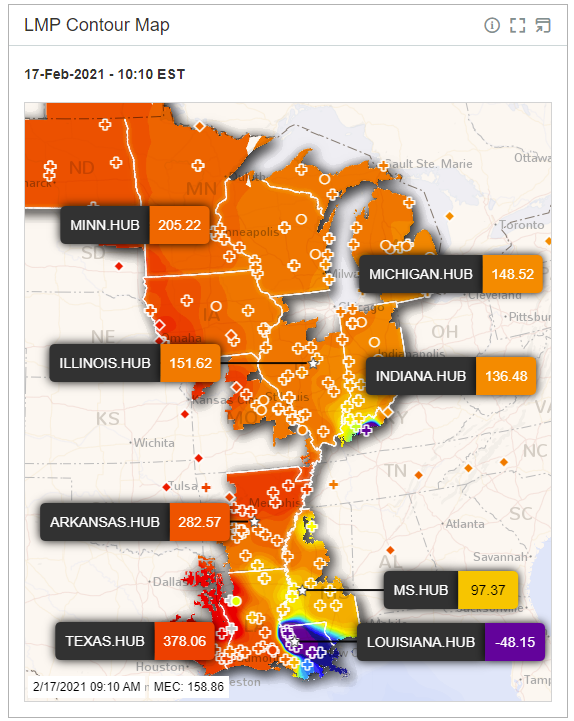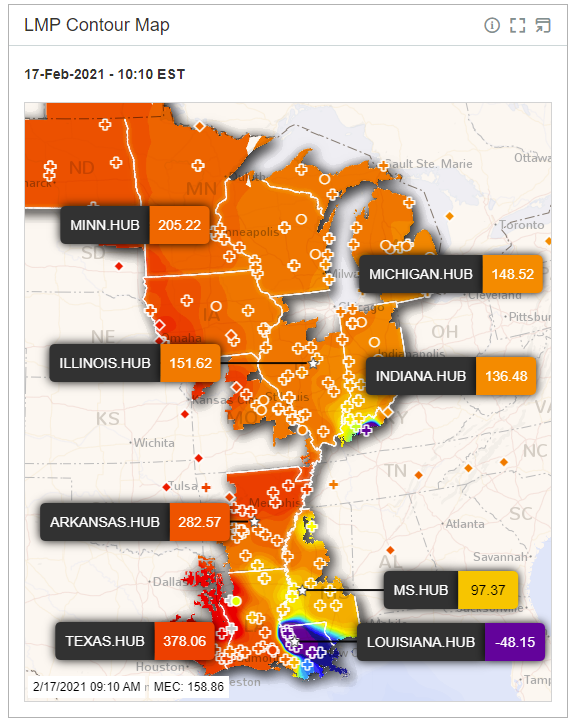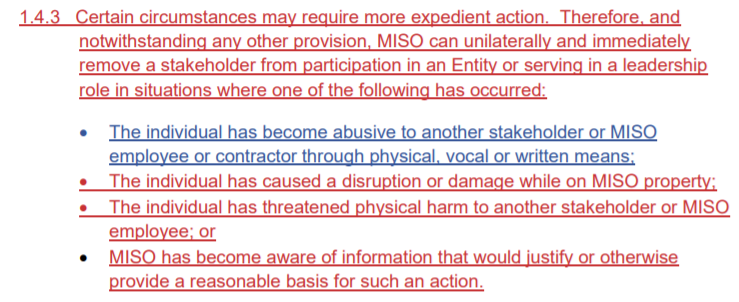While debate rages over blackout causes (fossil fuels? market design?) few have pointed out transmission expansion planning failures. @aripescoe published this great paper (in January!) explaining why major utilities are hampering transmission planning. https://papers.ssrn.com/sol3/papers.cfm?abstract_id=3770740
One aspect of RTO/ISO's is "transmission expansion planning". MISO's process is the MISO Transmission Expansion Plan MTEP. There are many *types* of transmission projects from small to big.
Small projects are 100% paid for by the local utility. Baseline Reliability Projects/"Other"/Age & Condition upgrades. Entergy has argued those projects don't need MISO review/approval. So, they're accepted as-is bottom-up projects.
Large projects are paid for by whomever benefits. These are called Market Efficiency Projects (MEPs), or Multi-Value Projects (MVP's). Larger transmission projects move power around more efficiently, and create market competition. Competition some utilities don't like.
In the MTEP process, MISO tries to find MEP's/MVP's. But as @AriPeskoe explains, utilities keep shifting transmission planning from big, bulk transmission projects, to smaller, unreviewed, 100% owned projects.
How do the utilities do this? Small projects aren't required to have a positive benefit/cost ratio. Big projects are required to more than pay for themselves. Utilities pack the transmission plan with tons of these "small" projects - up to hundreds of millions of dollars.
If you do enough small projects, the big projects don't appear to pencil out with a positive B/C ratio. The big projects don't get built. If MISO were to gather up all the small projects, and find a larger transmission solution, it'd have larger benefits.
Entergy hired a secret consultant to lie at MISO meetings to slow things down in the transmission planning process. That's how big of a deal this subterfuge is. Mississippi ratepayers paid for this subterfuge, and no one knew it. Except Entergy. And Dave. https://www.energyandpolicy.org/entergy-undercover-consultant-influence-miso-stakeholder/
The result is after SEVEN YEARS, MISO North/MISO South cannot move power back and forth easily. Price separation between the North/South is costing the system an arm and a leg. And MISO South is having rolling blackouts.
The problem with this anti-transmission tactic, is it doesn't just shield Entergy from MISO North competition, it also restricts transmission build-out within MISO South. So cheap power from Mississippi can't flow to Texas. Mississippians are losing money! No one wins!
And let's be clear. When Entergy joined MISO in 2013 (while under investigation by the Dept. of Justice for anti-competitive business practices), Entergy *could* have joined SPP, where they have *much better* transmission connections. Instead, Entergy chose MISO.
Large MEP/MVP projects have virtually halted across the MISO footprint since 2013. During MISO maximum generation events (like a polar vortex), we're all hurt by bad transmission planning.
This is not a MISO problem. As @AriPeskoe points out, RTO membership is voluntary. And MISO staff are under extreme pressure to bend to member's (Entergy) will, lest they leave. Staff are often threatened by utilities. MISO's Advisory Committee is discussing this topic, TODAY.
And just to be clear - there are no wind farms in MISO South. The rolling blackouts are NOT a renewables problem. It's a fossil fuel problem *and* a transmission problem. We need to accurately identify the problem, so we can find appropriate solutions.
From @AriPeskoe, "IOUs exploit their state-granted service territories to avoid FERC-mandated competitive transmission development processes" and "The FERC-regulated planning process is a protection racket"
Oh, and now Entergy is blaming MISO for the outages. "We were notified by our grid operator, MISO, to begin intermittent power outages to maintain the safety and stability of the power grid." "We are working to repair damages and restore our system to normal grid operations"
@threadreaderapp unroll

 Read on Twitter
Read on Twitter




